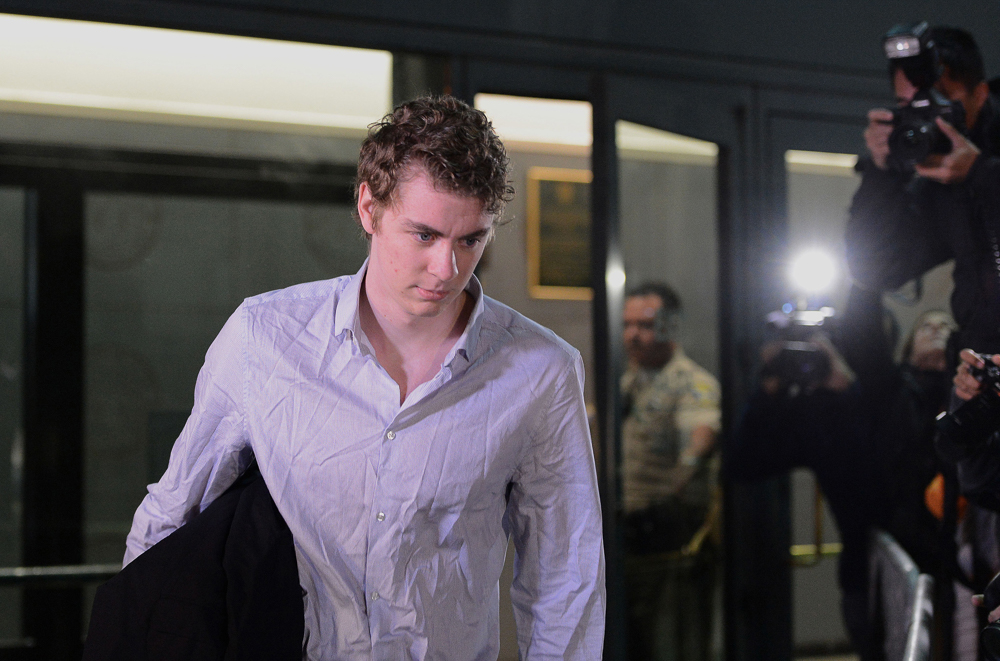Society can set standards when courts fail
Photo Courtesy of Tribune News Service
Brock Turner leaves the Santa Clara County Main Jail on Friday, Sept. 2, 2016 in San Jose, Calif. California Gov. Jerry Brown has signed legislation expanding the legal definition of rape and imposing new mandatory minimum sentences on some sexual assault offenders — measures inspired by outcry over Turner's sexual assault case. (Dan Honda/Bay Area News Group/TNS)
Sep 19, 2017

Hanging on my wall is a two-page letter that my mom wrote me when I left for college. It is full of quotes and stories meant to inspire me and remind me of my values and goals.
Toward the end of the letter it says, “‘No’ always means ‘no.’ In all of your travels, go with a friend and be careful. Don’t leave your drink unattended. If you jump out of a plane, befriend gorillas in a jungle or scale mountains — be careful!”
Like so many other girls, this was not new advice for me to receive. In the reality of today’s world, this makes sense.
Like so many other girls, I read every word of the letter that a Stanford rape victim read aloud to her assailant, Brock Turner, a year and a half ago, during his sentencing after being found guilty of three counts of sexual assault. Like so many other girls, I felt my stomach clench and tears well in my eyes as I read line after line about something that should be common sense, but somehow isn’t.
Get The Daily Illini in your inbox!
I felt the anger as I read a line that said, “Sometimes I think, if I hadn’t gone (to the party), then this never would’ve happened. But then I realized, it would have happened, just to somebody else.”
I hate how much I know this to be true. Whether the victim is a man or a woman, sexual assault is somehow still not understood by all.
For weeks, I was fixated on this story involving a girl I don’t even know. For weeks, my Facebook news feed was fixated on this story of obvious rape, with news articles that felt it appropriate to discuss Turner’s impressive swim times, his Olympic potential and his father claiming that a six-month sentence was “a steep price to pay for 20 minutes of action.”
My anger returned when Turner was released after serving just half of his six-month sentence.
And then I read yet another column from the litany released following the trial. It wasn’t very well written, but the author herself said that that was the point. She said that she would happily add to the stream of articles on the subject, even if hers was not the most professional of writing, so that she could help ensure that Turner received the sentence he deserved: a life in which he cannot be forgiven for his actions because his name is branded on our screens and our memories.
Last week, a photograph from the textbook of a Washington State University criminology class circulated my social media feeds. The textbook page in particular defined the term “rape” and included a picture of Turner as an example.
This story cemented the fate of Brock Turner, and shows that society at large can, at times, dictate consensus more than any member of law enforcement or political figure.
I do not believe the names Aaron McKinney and Russell Henderson should be any less known than that of Matthew Shepard. I do not believe the name George Zimmerman should be any less known than that of Trayvon Martin.
On the contrary, I believe it is our responsibility to hold every member of this society accountable for their deeds.
Whether it is sexual assault, hate crime, police brutality or anything else, it is our job as a society to ensure that our values are remembered and to recognize that our thoughts have weight.
In the world we live in, physically and within the realm of the media, we have the ability to direct the course of the future by standing firmly for what we believe in. We can, as a community, hold individuals responsible for their actions and guide the future to the direction we see fit.
The law failed to bring appropriate justice to Turner, but society can pick up where the judge left off and ensure that nobody forgets the terrible consequences of his “20 minutes of action.”
Hayley is a junior in ACES.






